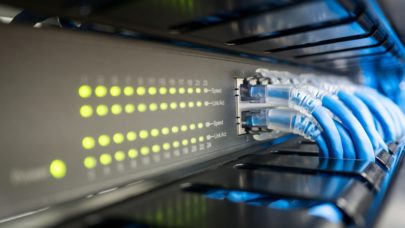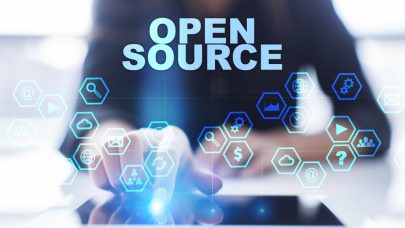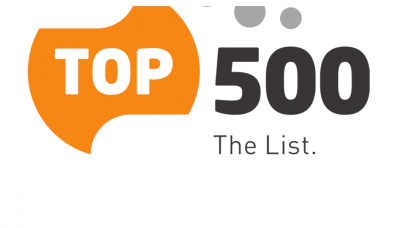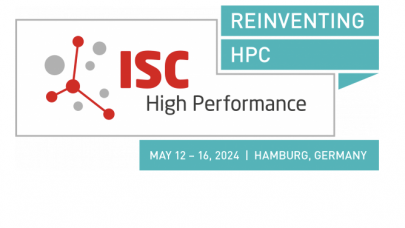SUNNYVALE, Calif., April 11, 2024 — NTT Research, Inc. today announced that the NTT Research Foundation, a 501(c)3 organization, has made a gift to establish the Harvard University Center for Brain Science (CBS)-NTT Fellowship Program in the new field of Physics of Intelligence.
 The two-year gift, renewable for up to three more years, creates a fund that supports post-doctoral research in the physics of intelligence, an emerging field that uses physics to tackle fundamental questions in intelligence, bridging computer science, neuroscience and psychology. If renewed, the donation could total over $1.7 million.
The two-year gift, renewable for up to three more years, creates a fund that supports post-doctoral research in the physics of intelligence, an emerging field that uses physics to tackle fundamental questions in intelligence, bridging computer science, neuroscience and psychology. If renewed, the donation could total over $1.7 million.
Harvard retains full control over the administration of the fund, which can be used to support two post-doctoral researchers, technology, facilities, travel, guest speakers for seminars and meetings, and other associated costs.
This new program will amplify themes that have emerged through a pre-existing relationship between Harvard CBS and the NTT Research Physics & Informatics (PHI) Lab. Under a 2021 joint research agreement, the two organizations undertook shared research into natural and artificial intelligence. Physicists and AI researchers from the PHI Lab’s Intelligent Systems Group, led by Hidenori Tanaka, who is also a CBS associate, have established fruitful alliances with neuroscientists and psychologists at Harvard.
In collaboration with CBS, Tanaka and PHI Lab Intern and CBS Affiliate Ekdeep Singh Lubana published a paper at ICML 2023 addressing bias in AI using insights from cognitive science. More recently, the team delivered two papers at NeurIPS 2023, addressing the science of generative AI (diffusion models) and the application of AI to neuroscience (recurrent neural networks). The former, co-authored by PHI Lab Scientist Maya Okawa, who is also in residence at CBS, and Lubana revealed insights into how generative AI systems learn to imagine, and includes an alert about the costs of fairness.
The latter, co-authored by Stanford University Ph.D. Candidate and PHI Lab Intern Fatih Dinc proposed an algorithm, based on recorded neural activity in mice, that yielded training speeds 100 times faster than traditional approaches. Tanaka has also collaborated with Harvard Assistant Professor of Psychology Tomer Ullman, also affiliated with CBS, on the behavioral patterns of large language models (LLMs) to be published at ICLR 2024. While an associate at CBS, PHI Lab Scientist Gautam Reddy published papers with CBS Director Venkatesh Murthy on feedback into hierarchically organized sensory systems and adaptive algorithms for shaping behavior. Now an assistant professor at Princeton University, Reddy also published a notable paper on “discontinuous learning.”
“We are thrilled to support the Harvard Center for Brain Science at the dawn of the Physics of Intelligence,” NTT Research President and CEO Kazu Gomi said. “As history teaches us, inventions – consider the steam engine, electricity, liquid crystals – can lead to new fields in physics. Today, AI is playing that role and giving us an opportunity to explore fundamental questions involving the science of intelligence, as well as address some urgent practical problems, like the need for computational systems that are unbiased, trustworthy and green. We believe this gift will advance those shared goals.”
The Harvard CBS is pursuing an ambitious mission. Scientists affiliated with the Harvard CBS study the structure and function of neural circuits; how they give rise to computations that govern thought and behavior; how those circuits change, develop and vary; and what circuits can become amiss or disordered, yet potentially ameliorated. “We’re grateful to the NTT Research Foundation for this generous gift, which comes on top of several years of unique intellectual contributions and collaboration,” Harvard CBS Director Murthy said. “The Harvard CBS looks forward to developing ideas around the Physics of Intelligence through fellowships, seminars, talks and other activities that both enhance and align with our diverse approach to neuroscience.”
Shaping this ongoing academic cross-pollination is the dramatic rise of powerful AI, which provides a new subject of study for the science of intelligence. “The interdisciplinary environment at Harvard’s Center for Brain Science has been crucial in nurturing this emerging field, which harnesses physics-based approaches to investigate foundational questions about intelligence,” PHI Lab Scientist and Harvard CBS Associate Tanaka said. “By conducting quantitative experiments and theoretical modeling involving AI systems, which are more accessible to testing and measurement than the human brain, we aim to uncover the universal mathematical principles that underlie intelligence in all its forms, both natural and artificial.”
The PHI Lab has pushed conventional boundaries before. In a 2020 article in Applied Physics Letters, drawing upon research involving the coherent Ising machine (CIM), PHI Lab Director Yoshihisa Yamamoto and colleagues at Stanford University and the University of Tokyo proposed a multifaceted, theoretical and experimental approach to combinatorial optimization problems that united perspectives from statistics, computer science, statistical physics and quantum optics. In effect: a new field of study.
In addition to its work on the CIM and initiatives in neuroscience, the PHI Lab is engaged in groundbreaking research into quasi-particles and non-linear optical materials. To support its overarching goal of re-thinking computation, the PHI Lab has reached joint research agreements (JRAs) with the California Institute of Technology (Caltech), Cornell University, Harvard University, Massachusetts Institute of Technology (MIT), Notre Dame University, Stanford University, Swinburne University of Technology and the University of Michigan. The PHI Lab also has a JRA with the NASA Ames Research Center.
About NTT Research
NTT Research opened its offices in July 2019 as a new Silicon Valley startup to conduct basic research and advance technologies that promote positive change for humankind. Currently, three labs are housed at NTT Research facilities in Sunnyvale: the Physics and Informatics (PHI) Lab, the Cryptography and Information Security (CIS) Lab, and the Medical and Health Informatics (MEI) Lab. The organization aims to upgrade reality in three areas: 1) quantum information, neuroscience, and photonics; 2) cryptographic and information security; and 3) medical and health informatics. NTT Research is part of NTT, a global technology and business solutions provider with an annual R&D budget of $3.6 billion.
Source: NTT Research


























































